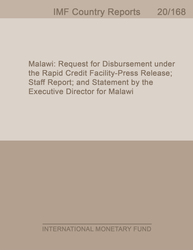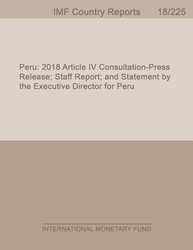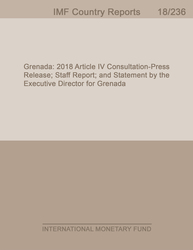
Malawi:Request for Disbursement under the Rapid Credit Facility-Press Release; Staff Report; and Statement by the Executive Director for Malawi
Request for Disbursement under the Rapid Credit Facility-Press Release; Staff Report; and Statement by the Executive Director for Malawi
READ MORE...
Volume/Issue:
Volume 2020
Issue 168
Publication date: May 2020
ISBN: 9781513544472
$18.00
Add to Cart by clicking price of the language and format you'd like to purchase
Available Languages and Formats
| English |
Prices in red indicate formats that are not yet available but are forthcoming.
Topics covered in this book
This title contains information about the following subjects.
Click on a subject if you would like to see other titles with the same subjects.
Banks and Banking , Exports and Imports , Finance , Public Finance , ISCR , CR , financing , pandemic , emergency financing request , IMF lending tracker , revenue shortfall , development spending , banking system liquidity constraint , financial support , current account , debt relief , Imports , Debt service , Global , COVID-19
Also of interest
Summary
This paper discusses Malawi’s Request for Disbursement Under the Rapid Credit Facility (RCF). The coronavirus disease 2019 pandemic is having a severe impact on Malawi, creating an urgent balance of payments need. The authorities have been proactive in mitigating the impact of the pandemic, including through increased spending on health care and social assistance, supporting small and medium enterprises, bolstering farmers’ incomes and ensuring food security through purchase and storage of agricultural harvests, and easing liquidity constraints in the banking system. The IMF’s emergency financing under the RCF is expected to help the authorities meet the large external financing gap and catalyze further assistance from the international community. Additional concessional donor support will be critical to close the remaining external financing gap and facilitate the needed interventions to ease the economic and social impacts of the pandemic, while preserving Malawi’s hard-earned macroeconomic stability. A widening of the budget deficit is appropriate in the near-term, given the fiscal costs associated with the economic slowdown and critical additional health care and social spending needs, which should be executed transparently and targeted to the most affected parts of society.
Copyright © 2010 - 2026
Powered by:
AIDC



